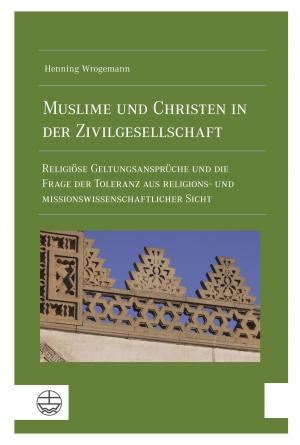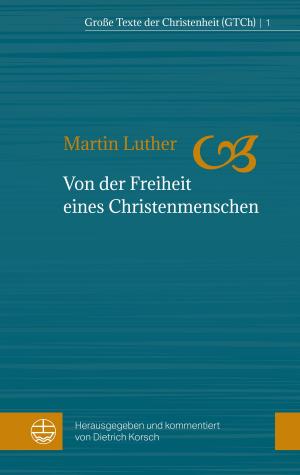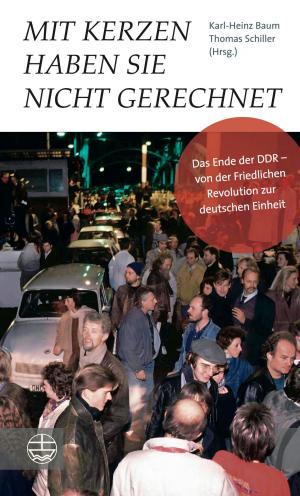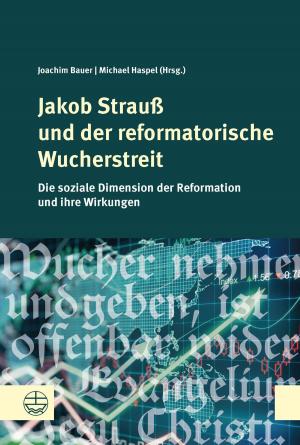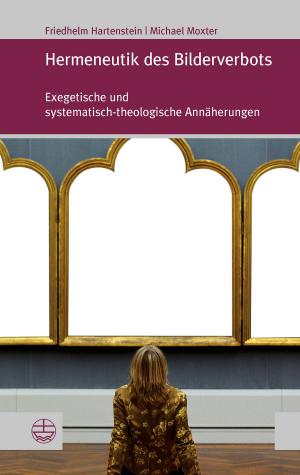Wirkendes Wort
Bibel, Schrift und Evangelium im Leben der Kirche und im Denken der Theologie
Nonfiction, Religion & Spirituality, Theology, Bible & Bible Studies, Christianity| Author: | Ingolf U. Dalferth | ISBN: | 9783374056507 |
| Publisher: | Evangelische Verlagsanstalt | Publication: | August 1, 2018 |
| Imprint: | Evangelische Verlagsanstalt | Language: | German |
| Author: | Ingolf U. Dalferth |
| ISBN: | 9783374056507 |
| Publisher: | Evangelische Verlagsanstalt |
| Publication: | August 1, 2018 |
| Imprint: | Evangelische Verlagsanstalt |
| Language: | German |
Wieder einmal gibt es in der evangelischen Theologie und Kirche in Deutschland einen Streit um das Alte Testament und die Bedeutung von Schrift und Schriftauslegung. Das ist gut so. Ohne diesen Streit würde das, was sich in Kirche und Theologie eingebürgert hat, nur noch so verstanden, wie es gerade weithin verstanden wird: nämlich missverstanden. Missverstehen ist leicht. Das gilt gerade für die Schrift. Im Gegensatz zur geläufigen Annahme ist die eigentliche Herausforderung nicht, wie die Schrift zu verstehen ist, sondern, was man eigentlich verstehen will. Es geht nicht primär um die Methoden, sondern um den Gegenstand der Auslegung: die Schrift, die zur Kommunikation des Evangeliums gebraucht wird, durch das sich Gottes Wort im Leben der Menschen wirksam zur Geltung bringt. Seit Längerem neigt die Systematische Theologie dazu, den Umgang mit biblischen Texten aus der systematischen Reflexion des Glaubens auszublenden. Eine Neubesinnung auf die Aufgaben einer theologischen Lehre von der Schrift ist überfällig. Ingolf U. Dalferth bietet diese Neubesinnung in einem großen Wurf, der ein Jahrhundert nach Karl Barths Römerbrief die Theologie am Beginn des neuen Jahrtausends überall dort aufschrecken wird, wo ein theologisches Ethos überlebt hat, das sich Glauben und Kirche zugehörig weiß. Dalferth verbindet seine Ausführungen auch mit praktischen Reformüberlegungen. Das »Leben der Kirche« und das »Denken der Theologie« werden so neu aufeinander bezogen. [Verbum efficax. Bible, Scripture and Gospel in the Life of the Church and in Theology] Once again there is a dispute about the Old Testament and the significance of Scripture for theology and church in Protestant theology and churches in Germany. That's a good thing. Without this controversy, what has become the established view in church and theology would continue to be understood in the way in which it is in fact understood – namely misunderstood. Misunderstanding is easy, understanding requires a serious effort. This is especially true for understanding Scripture. For in contrast to the common assumption, the real challenge is not how to understand Scripture, but what one actually wants to understand. It is not primarily about methods, but about the subject of interpretation, namely Scripture that is used to communicate the Gospel, through which God's Word is effectively brought to bear on people's lives. For some time now, Systematic Theology has tended to ignore the interpretation of biblical texts in the systematic reflection of faith. A reconsideration of the tasks of a theological doctrine of Scripture is long overdue. One century after Karl Barth's Letter to the Romans, Ingolf U. Dalferth offers a reconsideration of these issues in a major monograph that will startle theologians at the beginning of the new millennium wherever a theological ethos that unites faith and church has survived. Dalferth also combines his remarks with practical reform considerations. The »Life of the Church« and the »Thinking of Theology« are thus interrelated in a new way.
Wieder einmal gibt es in der evangelischen Theologie und Kirche in Deutschland einen Streit um das Alte Testament und die Bedeutung von Schrift und Schriftauslegung. Das ist gut so. Ohne diesen Streit würde das, was sich in Kirche und Theologie eingebürgert hat, nur noch so verstanden, wie es gerade weithin verstanden wird: nämlich missverstanden. Missverstehen ist leicht. Das gilt gerade für die Schrift. Im Gegensatz zur geläufigen Annahme ist die eigentliche Herausforderung nicht, wie die Schrift zu verstehen ist, sondern, was man eigentlich verstehen will. Es geht nicht primär um die Methoden, sondern um den Gegenstand der Auslegung: die Schrift, die zur Kommunikation des Evangeliums gebraucht wird, durch das sich Gottes Wort im Leben der Menschen wirksam zur Geltung bringt. Seit Längerem neigt die Systematische Theologie dazu, den Umgang mit biblischen Texten aus der systematischen Reflexion des Glaubens auszublenden. Eine Neubesinnung auf die Aufgaben einer theologischen Lehre von der Schrift ist überfällig. Ingolf U. Dalferth bietet diese Neubesinnung in einem großen Wurf, der ein Jahrhundert nach Karl Barths Römerbrief die Theologie am Beginn des neuen Jahrtausends überall dort aufschrecken wird, wo ein theologisches Ethos überlebt hat, das sich Glauben und Kirche zugehörig weiß. Dalferth verbindet seine Ausführungen auch mit praktischen Reformüberlegungen. Das »Leben der Kirche« und das »Denken der Theologie« werden so neu aufeinander bezogen. [Verbum efficax. Bible, Scripture and Gospel in the Life of the Church and in Theology] Once again there is a dispute about the Old Testament and the significance of Scripture for theology and church in Protestant theology and churches in Germany. That's a good thing. Without this controversy, what has become the established view in church and theology would continue to be understood in the way in which it is in fact understood – namely misunderstood. Misunderstanding is easy, understanding requires a serious effort. This is especially true for understanding Scripture. For in contrast to the common assumption, the real challenge is not how to understand Scripture, but what one actually wants to understand. It is not primarily about methods, but about the subject of interpretation, namely Scripture that is used to communicate the Gospel, through which God's Word is effectively brought to bear on people's lives. For some time now, Systematic Theology has tended to ignore the interpretation of biblical texts in the systematic reflection of faith. A reconsideration of the tasks of a theological doctrine of Scripture is long overdue. One century after Karl Barth's Letter to the Romans, Ingolf U. Dalferth offers a reconsideration of these issues in a major monograph that will startle theologians at the beginning of the new millennium wherever a theological ethos that unites faith and church has survived. Dalferth also combines his remarks with practical reform considerations. The »Life of the Church« and the »Thinking of Theology« are thus interrelated in a new way.


